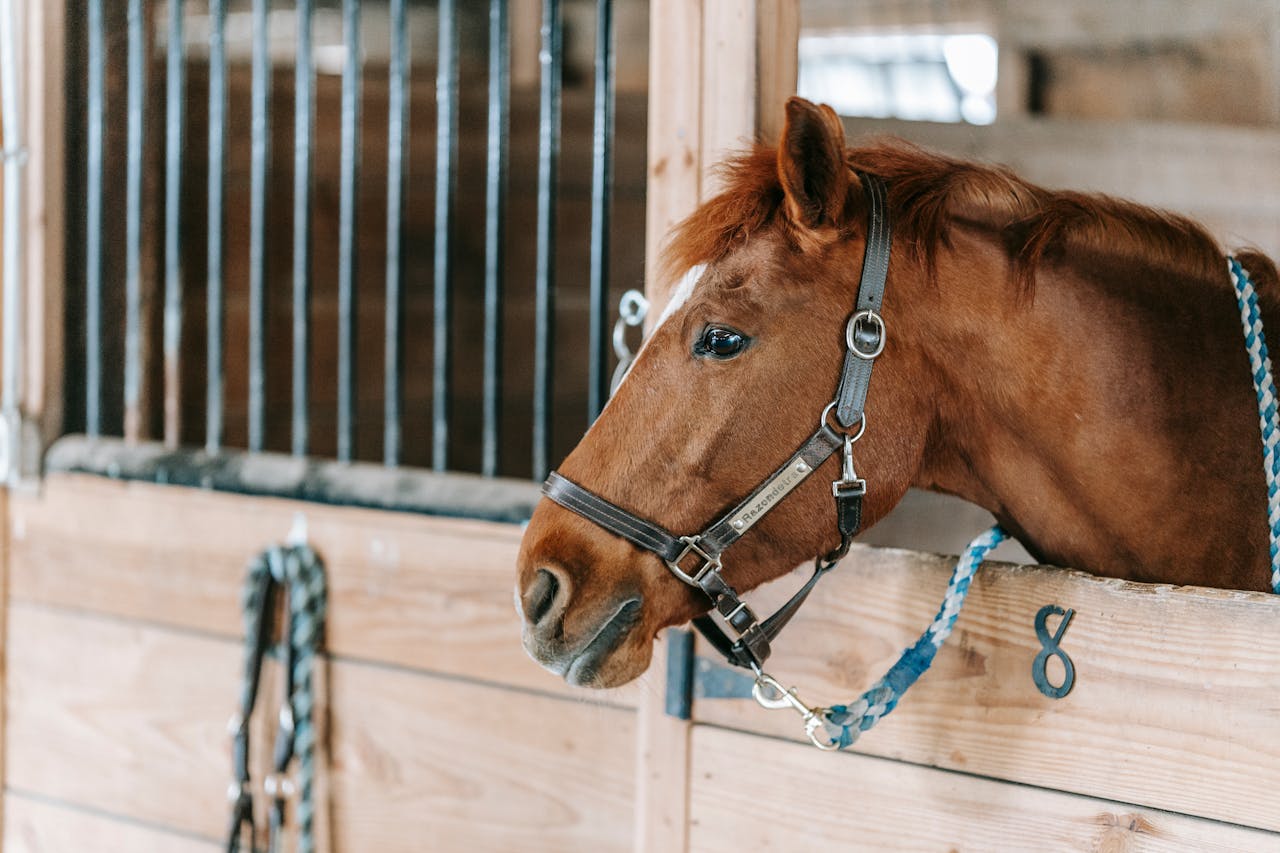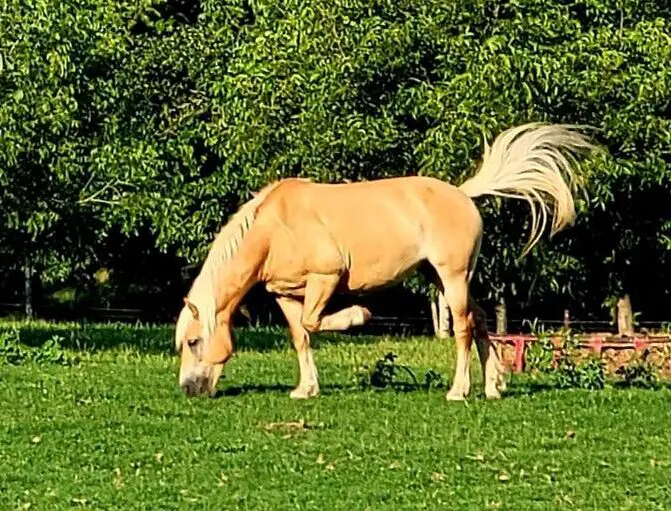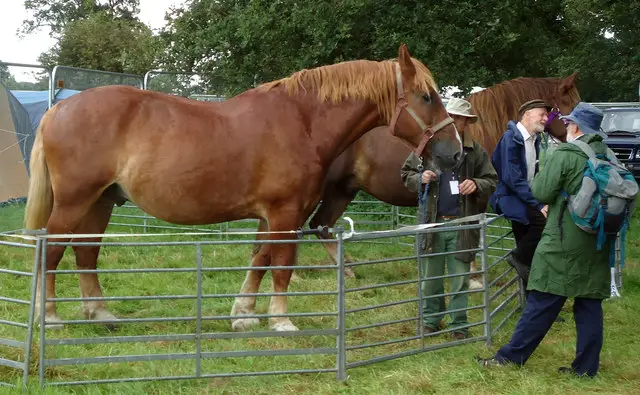What Is a Good Name for a Royal Horse?
Anyone proudly looking to adopt a prestigious and elegant horse might like the sound or the connotations of giving it a royal name. A majestic moniker can carry a sense of power, strength, and history—all very appealing qualities to attribute to a fine horse! Perhaps you’re looking to name them after a historical figure, event, or legendary horse? The following royal horse names will offer you plenty of inspiration to name your pride and joy.
What Were the Names of Kings’ Horses?
Firstly, Kings’ horses have always been classic symbols of power and wealth. This was especially true in ancient times when horses were meant for travel, warfare, and showing status. For instance:
- Many certainly admired Alexander the Great’s horse, Bucephalus, for standing strong and brave.
- During the Middle Ages, kings and queens introduced horses in elaborate ceremonies and sports. Louis XIV of France (as an example) kept enormous stables at the Palace of Versailles, where he showcased many horses.
- Horse racing (then called the “sport of kings”) became a favorite among royalty. What’s more, Henry VIII and Charles II were among many kings who enjoyed setting up racing yards and breeding top-quality racehorses.
Similarly, let’s look at some notable famous names of kings’ horses throughout history:
- Bucephalus – The horse of Alexander the Great.
- Incitatus – Emperor Caligula’s favorite horse.
- Buttermilk – Likewise, one of Queen Elizabeth II’s favorite horses.
- Maximus – The horse Lee Min-ho rode in the TV series The King: Eternal Monarch.
- Blueskin – One of George Washington’s primary mounts during the American Revolutionary War.
What Names Did Knights Give Their Horses?
Secondly, how about exploring some regal horse names inspired by knights’ choices? Early in the Middle Ages (5th to 15th century), the remarkable affinity between knights and their horses first became evident. During that time, knights used animals for various purposes, including moving around, engaging in combat, and covering great distances. Ultimately, their amazing relationship involved much trust and training.
Naming a horse was so important at that time; it showed how much the knight valued their horse. It also indicated their status (and esteem) within the hierarchy. Furthermore, their name choices represented qualities like strength, bravery, and loyalty—all attributes that knights admired.
Accordingly, you might enjoy these knightly horse names:
- Galahad – His name was in honor of the noble Knight of the Round Table (known for his purity and bravery).
- Bayard – Quite the legendary magical horse. For instance, he or she (gender unknown) possessed the gift of incredible strength (and the ability to understand human speech!)
- Gringolet – The famous horse of Sir Gawain, another Knight of the Round Table.
- Lamri – Known as the horse of Sir Bors, who was celebrated for his loyalty and courage.
- Shadowfax – Though more recent, this horse is famous as the steed of Gandalf in The Lord of the Rings. Impressively, he embodies the qualities knights seemed to admire.
- Bucephalus – This famous horse of Alexander the Great deserves another mention. Of all the royal horse names mentioned here, Bucephalus is a special one. Overall, knights admired this mount for its power and faithfulness.
Did You Know? Napoleon Bonaparte rode Marengo, one of the most well-known royal horses. Marengo, who many praised for his valor and tenacity, led Napoleon during numerous significant conflicts. The most notable one was the Battle of Waterloo. His name came about after Napoleon’s triumphant celebration at the Battle of Marengo in 1800. Marengo thus rose to prominence as a beloved representation of tenacity and devotion.
Names That Signify a Powerful Horse
Consider the following powerful horse names. Also, I’ll provide some reasons why they might be appropriate for your majestic steed:
- Thunder – Evokes a sense of strength and might, like the powerful sound of a storm.
- Valor – Signifies bravery and courage, perfect for a horse that shows great spirit.
- Titan – Represents immense strength and power, inspired by the ancient Greek giants.
- Storm – Suggests speed and unstoppable force, like a natural hurricane or typhoon. (If you’re familiar with The Legend of Zelda: Breath of the Wild, there’s a reference to Zelda’s horse, Storm, in her diary.)
- Zeus – A godly name, representing outstanding authority and dominance. In fact, this name comes after the king of the Greek gods.
- Majesty – Highlights the horse’s noble and grand presence.
- Blaze – Conveys fierceness and energy, like a blazing fire.
- Champion – Perfect for a horse with a winning spirit and, above all, a competitive edge.
- Juggernaut – Appropriate for a strong and resilient horse. It also implies an unstoppable force,
- Commander – Reflects leadership and control (ideal for a horse with a commanding presence).

Famous British Royal Horses
The following royal horse names showcase the profound connection and long-standing custom of horse riding and racing within the British royal family:
- Estimate – Queen Elizabeth II owned this thoroughbred racehorse. To clarify, she proudly won the prestigious Ascot Gold Cup in 2013, which made the Queen the first reigning monarch to win the race in its 207-year history!
- Highland Fling – Another favorite of Queen Elizabeth II, a stallion from New Zealand. He delivered grace and participation in various equestrian events.
- Sanction – This horse was arguably one of the Queen’s most reliable mounts, especially while she spent her later years horseback riding.
- Shirley Heights – Another notable racehorse the Queen owned. She named him after the famous landmark in Antigua and winner of the 1978 Epsom Derby and Irish Derby.
Did you know? Queen Isabella of Spain allegedly kept over 100 palomino horses in the 1500s? Accordingly, she decreed that only royalty had permission to ride them! Consequently, this bold association with aristocracy helped establish palominos as a symbol of prestige and nobility. See also 245 Classic, New & Unique Names for Palomino Horses.
Unique Royal Horse Names
For a Male (Stallion/Gelding):
- Regal Thunder – Evokes the power and authority of a royal horse.
- Noble Stride – Suggests a horse with a proud and majestic gait.
- Imperial Flame – Conveys strength and a fiery spirit.
- Valor’s Echo – Reflects bravery and an enduring legacy.
- King’s Guardian – Symbolizes loyalty and protection for the monarch.
For a Female (Mare/Filly):
- Queen’s Grace – Emphasizes elegance and poise, a perfect moniker for a royal white horse.
- Majestic Dawn – Captures the beauty and promise of a new beginning.
- Empress Pearl – Suggests rare beauty and value.
- Crown Jewel – Highlights the horse’s precious and cherished nature.
- Lady Valor – Combines femininity with strength and courage.
For a Steed (Strong and Noble Horse):
- Knight’s Spirit – Reflects the noble and brave nature of a knight’s horse.
- Valiant Charger – Suggests a powerful and fearless mount.
- Dragon’s Heart – Would you agree this evokes mythical strength and endurance?
- Royal Storm – Conveys the power and unstoppable force of a storm.
- Emperor’s Stead – The stability and strength of an emperor’s horse rings true in this name.
Final Thoughts
In summary, picking a name is a personal and meaningful decision for many horse owners. Hence it’s a way to reflect their values, aspirations, and the connection they share with their horse. I hope you enjoy browsing through these royal horse names, inspired by kings, queens, and knights. And, now you have many powerful naming ideas to choose from for your noble steed!
Sources:
- Gabriel, R. A. (2017). Alexander the Great: A Life in Legend. Hachette UK.
- Arnold, J. (2011). Napoleon: Soldier of Destiny. Little, Brown Book Group.
- Cross, R. (2006). Queen Elizabeth II and her Horses. The Royal Horse.
- Adkins, L., & Adkins, R. A. (2010). The War Horse: 1650-1914. Macmillan.
- Holmes, R. (2006). Wellington: The Iron Duke. HarperCollins.




